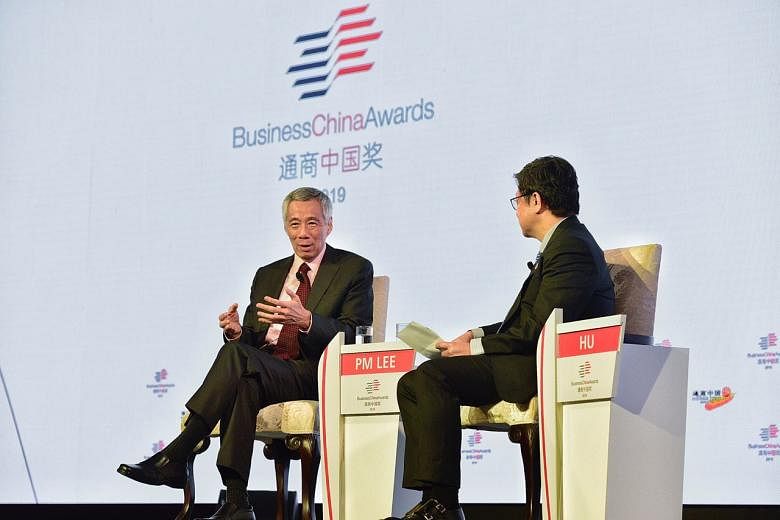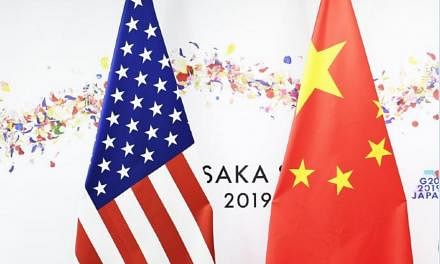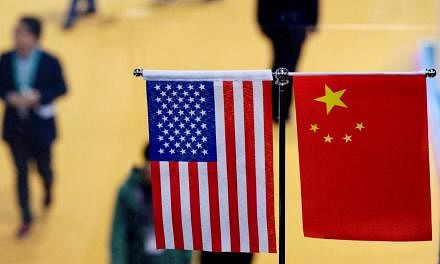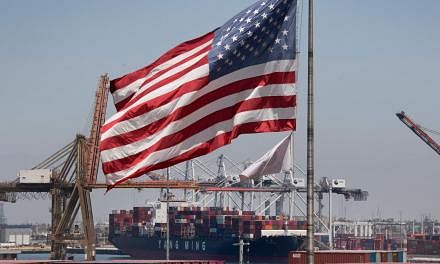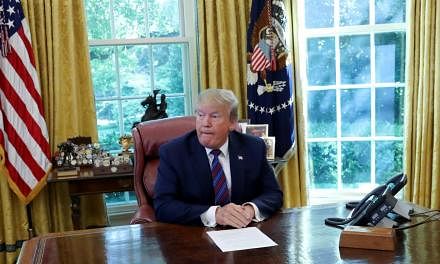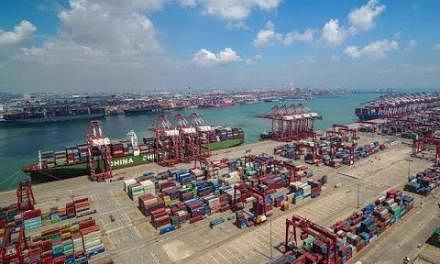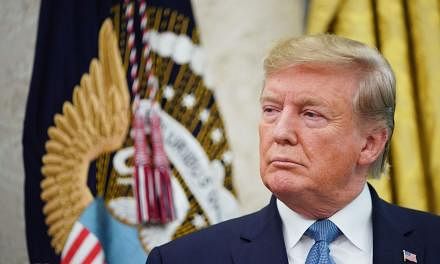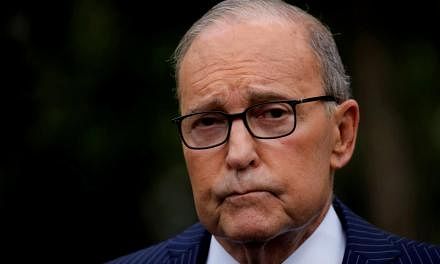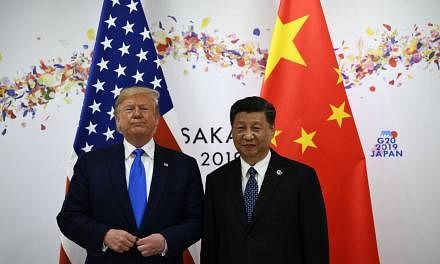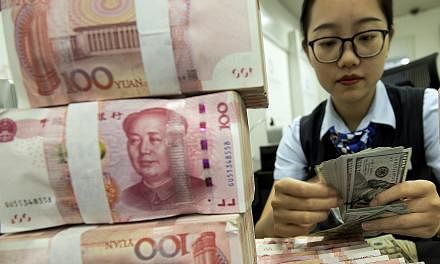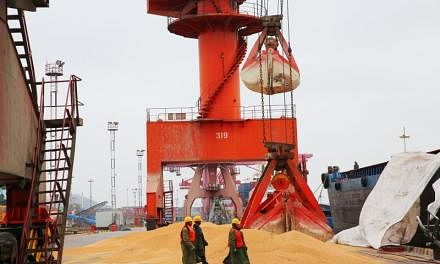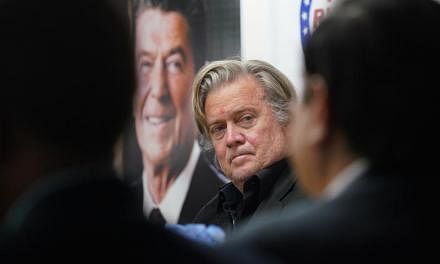The upcoming meeting between Chinese President Xi Jinping and United States President Donald Trump at the Group of 20 Summit in Japan this month could provide the leaders an opportunity to turn things in a more positive direction.
But the ongoing trade war between the two countries is unlikely to be resolved with just one meeting, Prime Minister Lee Hsien Loong said yesterday at a dialogue.
"The differences between the two sides have become more sharply defined. The positions have hardened and quite a few of the positions have now been taken publicly, so it is not easy to walk back on them and compromise," he said.
PM Lee said the US is asking for "fundamental changes" to the Chinese economy that go beyond tariffs or trade rules to the heart of the structure of China's economy.
When considered from a broader perspective as a trial of strengths between major powers, that makes it even harder for China to make the changes, he said.
PM Lee gave his views on US-China relations and a range of other issues during the dialogue held at Marina Bay Sands Expo and Convention Centre. It was part of the Business China Awards 2019 event.
Business China board director Robin Hu, who moderated the dialogue, asked PM Lee if he saw a bifurcation of the US and Chinese economies as possible, if not likely.
Recounting how the Western countries and Soviet bloc were split in two different worlds during the Cold War, PM Lee said the world "was a considerable amount poorer for that division and for that failure to integrate and work together".
All the countries joined the global system after the Cold War ended, sharing technology and developments, he noted.
Citing how China accounts for one quarter of sales for Boeing and Airbus, he said: "So, if you cut it in two... it will be very painful."
Mr Hu also asked how smaller countries could learn to "orbit around two galaxies" in a bifurcated world and keep both China and the US happy.
PM Lee said countries such as Singapore would have to work on the basis of calculating what is in their own interest and not be seen to be acting on behalf of one power or another.
"Then there is some chance for us to say: Well, I am your friend but I'm also his friend. I'm not his stooge, I'm not his stooge, I represent myself," PM Lee said.
If big powers such as the US and China hope to have a world that is not "completely polarised" into two camps, they would have to not force smaller countries to take sides, he said.
PM Lee added: "I think that countries are under pressure and are being asked - I wouldn't say to take sides - but to speak up on behalf of what each participant thinks is the right thing to say. And we have to say what we think is the right thing to say, which is what Singapore is currently doing."
Asked what Singapore's leaders - from founding Prime Minister Lee Kuan Yew to Emeritus Senior Minister Goh Chok Tong to himself - have done right to maintain warm relations with China over 30 years, PM Lee said: "I always hesitate to analyse what we have done right because tomorrow, something happens and you are asked what have you done wrong. But I can say what we have tried to do."
Elaborating, he said that Singapore has always tried to make sure that its relationship with China is based on reality and candour.
"We are honest with each other, we recognise what the situation is and we don't make believe and just say nice things to each other."
In addition, it is also important that both countries' fundamental interests are aligned, said PM Lee, adding that this allows both sides to explore areas of cooperation.
The fundamental interest on China's side is that Singapore sees China's development and progress as a good thing for the world, he said.
"China sees that Singapore, we have our own independent position, we have our own foreign policy, we are majority Chinese but we are multiracial and we take our own position as the Republic of Singapore. So, on that basis, we can work together and there is a lot of room to cooperate," he added, citing projects such as the Chongqing Connectivity Initiative.
While it is important that there is rapport between the leaders of both countries, PM Lee said, there must also be an "understanding of what is the fundamental interest of the countries and how we can work together to further them". "And where interests don't align, to be honest and candid and to adjust."
